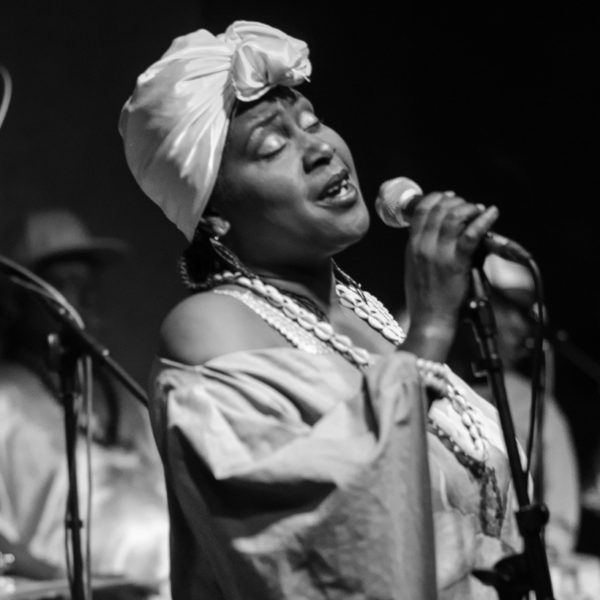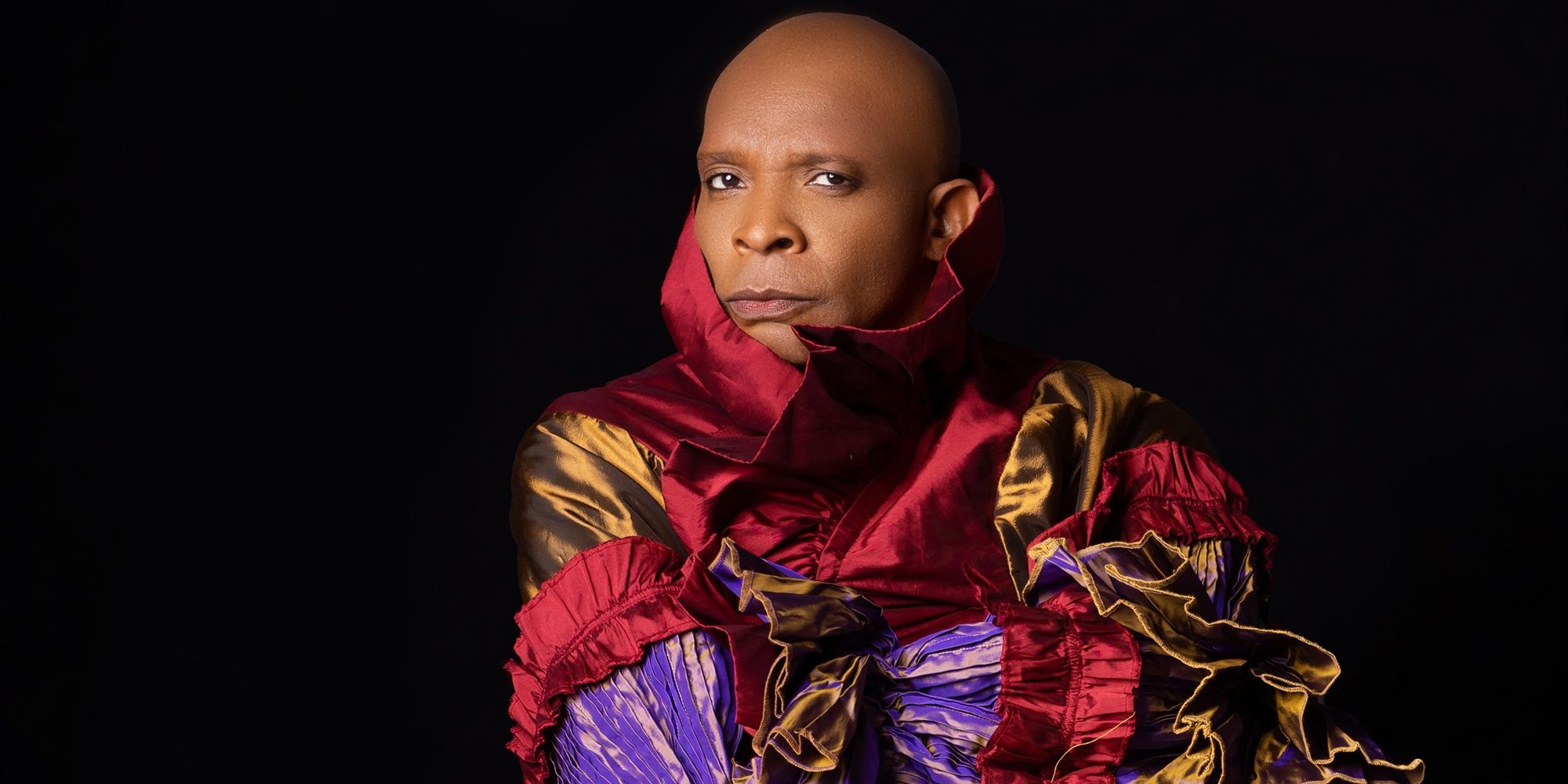Érol Josué is a veteran Haitian musician, singer, dancer and a vodou priest. His performances, recordings and videos present a tapestry of his worldly travels and experience in various genres of music—jazz, roots pop, electronica, and Haitian spiritual. His extraordinary voice channels the joy and agony of Haiti’s troubled history. It has been 16 years since Josué’s debut album, Regelman. Now in 2023, he comes with a rich, expansive set of 18 tracks called Pelerinaj (Pilgrimage). Afropop’s Banning Eyre reached the artist at his home in Port au Prince, Haiti. The Zoom connection was a bit intermittent, and we’ve taken some liberties in transcription in the interest of clarity. Here’s their conversation.
Banning Eyre: Érol, good to see you.
Érol Josué: You too. It’s been a long time.
Where am I reaching you?
I’m in Haiti.
The last time we spoke was when you were doing the virtual WOMEX conference during Covid.
Three years ago.
Yes. Well, this is an amazing album. There's a lot to take in and I need to listen more, but I’m really enjoying it. It's been a while since your first album, Regelman.
Regelman was in 2007.
Wow. Thirteen years. Tell me the idea for this album. What was the goal this time?
Pelerinaj is “pilgrimage” in English. The goal of this album? First of all, it's about Haiti, and it's about music. I was looking for elevation, inspiration, uplifting my soul and the souls of Haitians. After 16 years, I put this album out as a way to pay homage to my ancestors, but also it's about the different countries I've been through as a musician. I lived in Paris, in New York, in America. It’s a combination, the way I see myself as a diaspora person and the way I see Haiti. In the middle of recording this album, I decided to go back to Haiti, after the earthquake. For me it was a different way to rediscover Haiti.
I was working for the state, for the government. [In 2013, Josué took a government job as head of Haiti's National Ethnology Office.] This gave me a different perspective, to know the system, the political system, the government system. And inside of the system I decided to be an advocate, to change something in the ethnography or ethnology of Haiti. This album is a different way for me to be an advocate. It's a different basket, a different hat to wear.
Pelerinaj is also an advocacy for social justice for Haitian people. It is the way to speak to the youth of Haiti. They need to be modern. They are the same as the youth from Canada from New York, from Paris, from Montreal, from Montevideo. They need to have a space to express themselves. They need peace. They need light. They need water. So that album is my way to advocate for Haiti, to pay homage to my ancestors, my lwa [intermediary to the divine], and also to present this mix of different cities where I’ve lived. I used to live in those cities, and now those cities live in me.
Paris and New York.
I used to live in Miami too, but the cities that gave me that strength are New York and Paris.
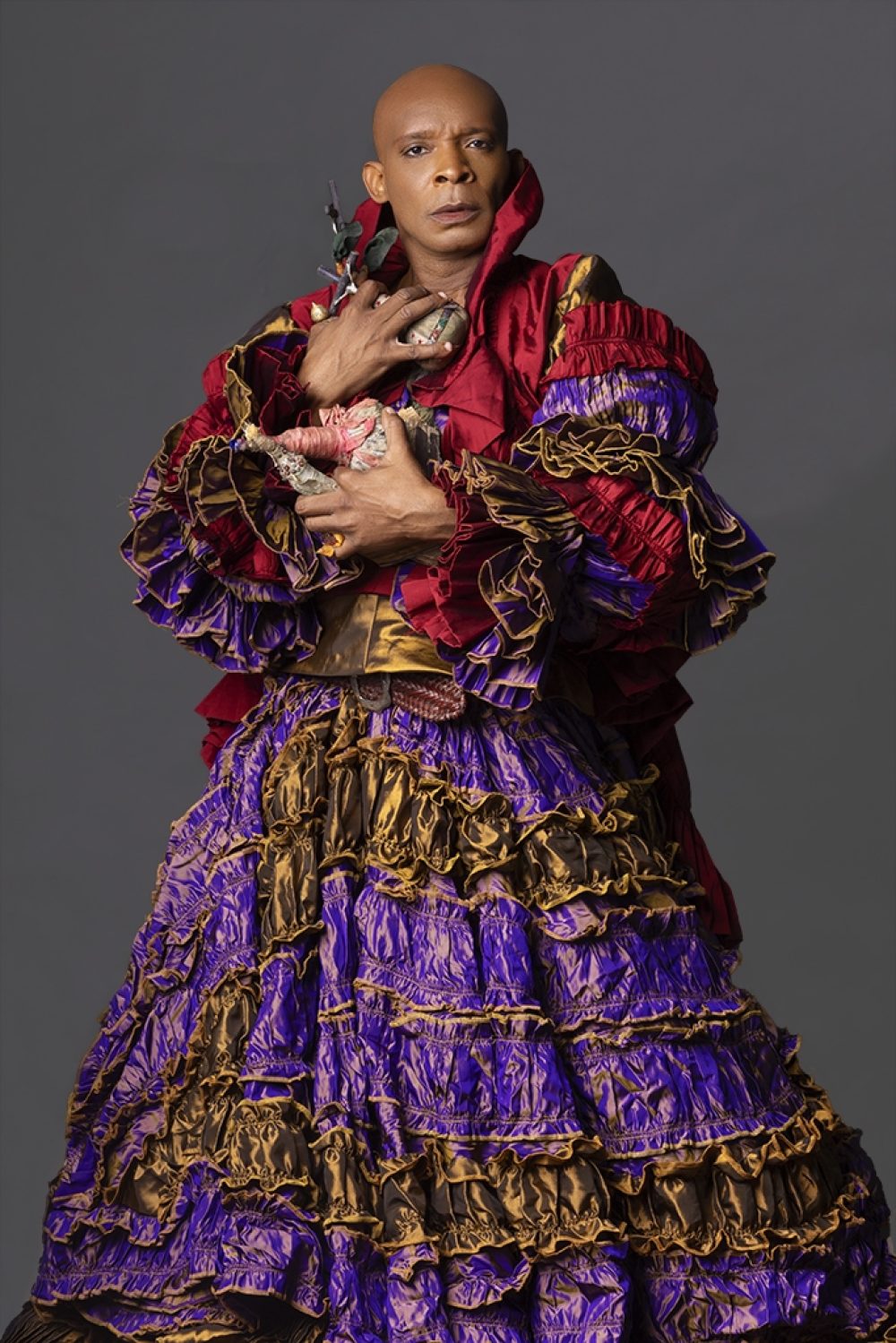
Talk about the title of the album.
Pelerinaj is that pilgrimage where Haitians go to different sites in Haiti, for example Saut-d’Eau or Plain du St Jacques to pray to or speak to and have a conversation with the spirit, or that saint. They go a lot to these different sites to light candles and to ask for a better life, a better tomorrow. They wear these clothes they call devotional clothes, a devotional costume. They go, for example, to Sanctuaries Notre Dame or St. Jacques Major on August 25, and to Saut-d’Eau on July 16. They go to have that space to bring the saint, to bring the soul, to bring the sour, bitter taste in the mouth, and to wash themselves in that water, that clean water, that spiritual water. It’s that idea from the pilgrimages I used to participate in as a kid when we would go as a family to Saut-d’Eau to pray and to speak with our spirit, our ancestors.
Fascinating.
And you can see in one of my videos for Pelerinaj for the song “Pelerinaj Fla Vodoun” that waterfall at Saut-d’Eau, where those people pray. They bring things to uplift themselves in their spiritual lives.
I suppose the idea of a pilgrimage also brings in the idea of these cities that you've lived outside of Haiti, right?
Of course. Being in New York and Paris was a part of my personal pilgrimage. For example, take the sounds on the album, the different musicians from different countries; it's a meeting, an encounter. I remember that after the earthquake, I created a music called “Sigbo Lisa.” It was inspired in New York and recorded in New York. When the earthquake happened, the first person I called was an American friend of mine, Charles Czarnacki. I said "I want to say something. I don't feel good.” Charles invited me to come to his house in Jersey City, and he gave me a mic, and I kept talking. Talk, talk, talk, talk talk. He gave me the possibility to say what I felt in the song “Sigbo Lisa.” I was sad.… I don't know. It was a very sad time in my life.
What was the music like?
Electro-vodou.
That earthquake was a watershed moment for all Haitians. I will never forget the moment I heard of it. Let’s talk more about the sounds on this album. You've got strings, you've got electronics, you've got big vocal choruses... It's a big sound. Talk about some of the collaborations that went into this album.
The album is really a meeting of different people, different musicians, different ways of life. On some of the music I recorded and collaborated with Jacques Schwarz-Bart, the polyphonic jazzman, of Jazz Racine Haiti. I also collaborated with Dener Céide, a guitarist from Haiti who lives in New York, and Charles Czarnacki also. But in Paris, I worked on the song called “Tchèbè Tchèbè” with that beautiful musician called Arthur Simonini, the composer and piano player. And also, I don't know if you know the musician Phillipe Cohen Solal.
Yes, from Gotan Project, the experimental tango group.
Yes. He's made beautiful albums, and we recorded in his studio. The sound was very good Also for the electronic sounds, I brought in Ben Zwerin, who also worked on my first album, Regelman. Then in Haiti, we went to Jacmel and invited some of the musicians to come and meet the vodou choir Nègès Fla Voudon and Tambours du Haiti, the drummers and percussionists from Haiti. So it's a mix of different schools, different ways to hear music from a different perspective, the spiritual sound: spiritual, electronic and jazz.
One thing I noticed is that your vocal strongly evokes the religious, spiritual side of the music, but at the same time, you work those vocals into song forms that feel more familiar to us. You have verses, choruses, chord changes. I like the way you combine these things. So as a composer when you're writing songs, how do you find that balance of influences?
First of all, I grew up in music. When I say grew up in music, I don't have a family with parents who are musicians, but I grew up in a vodou temple in Port-au-Prince. When I was a kid, it was a musical country. From the different proverbs and stories, it was a river of music that we lived with. The sound of the breeze from the mountains, the sounds of the animals. It's all there. This is all music. And the way they explained the stories just stayed in my mind, in my genes, in my soul.
So when I started to learn the spiritual language, for me it was music. Playing music helped me understand myself and my people. What they call the tribes are supposed to meet at the crossroad. From that idea came this message in my mind. My ancestors spoke to me in my dreams, which was another inspiration for the music. Also, I love other music, from America, from Europe, from Haiti, from Africa. Lots of music. I've been around music all my life. It's an education. It's a way of life to know that vodou music, the skin of that animal who makes the drum, that plays in my mind; it’s in my blood. But there is also what is happening in the world. All these things influenced me as a person. I think this gave me a certain musical education, a way of life.
All that comes through in the songs. For a few songs, you have a string section. Where did you record that?
Yes. That's a real string section we recorded in Paris with Arthur Simonini. For me when I was looking for sounds, something that would touch myself, my soul, first was the drum. But the second instrument that I wanted to hear was the violin. I needed those strings to express myself. The album is a symbol of what Haiti is supposed to be, the Haiti we are looking for. That's what I feel when I put those string sections into the songs. And the other different sounds, like the guitar, the way we approach it is a different way. For me it's a different way to uplift our soul and continue the pilgrimage.
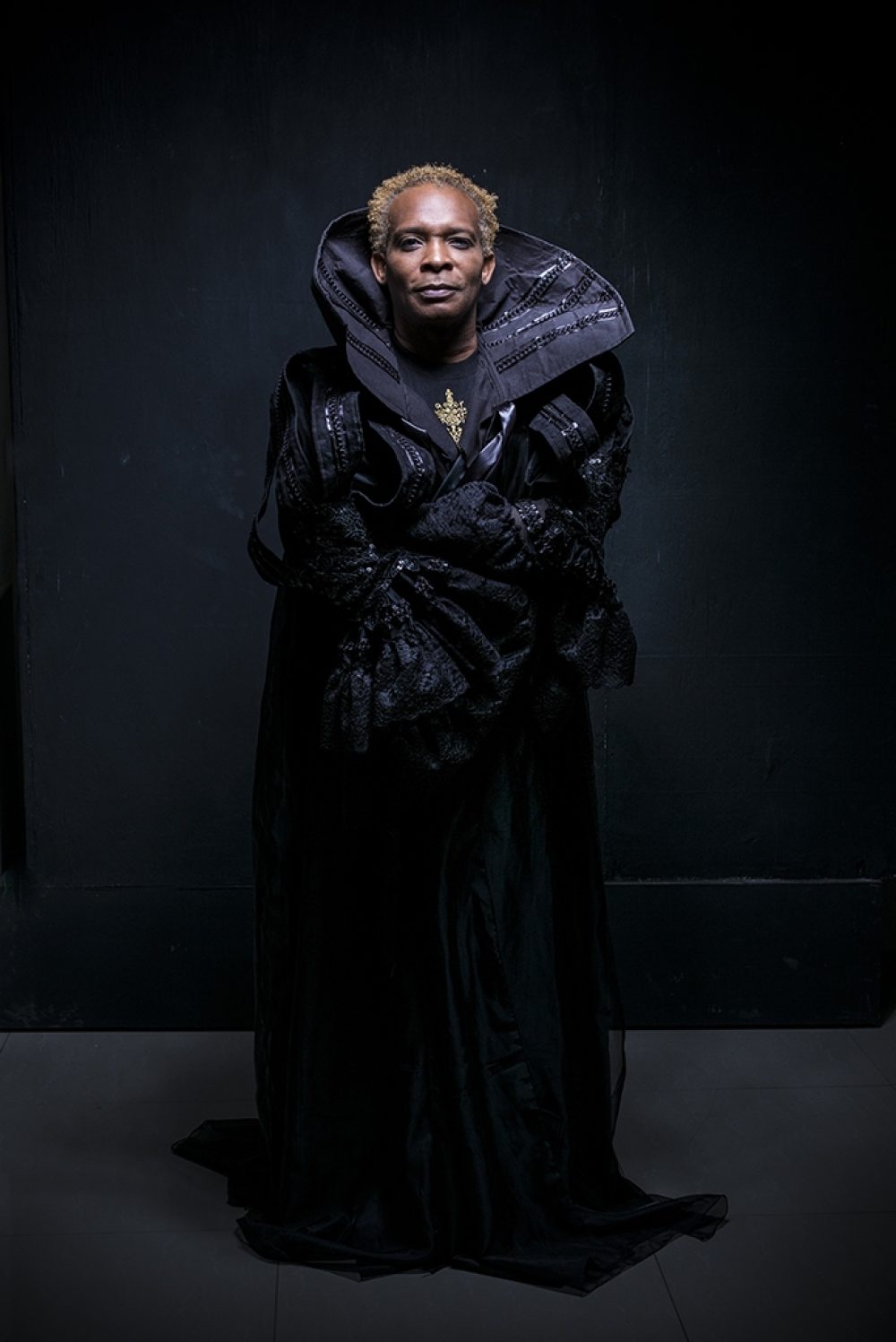
You spoke about Paris. Talk about New York and how that affects this music.
New York is very important for this project. It's my American dream. Living in New York as a musician is a privilege. It's very nice, because it's a capital of so many different things: a capital of music, capital of fashion, of art, or freedom. I love that city. That city is a global city. You have Haitians, you have Chinese, you have Italians, you have Africans. There a places where you feel like you're in Africa. There's nowhere else you can have all that in one city. For me it's beautiful. It's extraordinary. I used to live in Washington Heights and then in Midtown, and I met a lot of great musicians there. I talked about Charles Czarnacki, who I met at the Manhattan School of Music, and Ben Zwerin, and Jacques Schwarz-Bart . So many different musicians, Haitians, non-Haitians, intellectuals. I get so much inspiration from that city.
When I learned about the earthquake, and these very bad things that happened to Haiti, I was in New York, and my musician family was there for me. When I lost my dad, when he passed away, I called a friend of mine and he came to my house and we recorded music at that time. That was another very important encounter in New York. Then there’s Daddy Beaubrun, and so many different musicians from Haiti there. That's one of the reasons it took me a long time to speak English. Because it was English here, Spanish here, Creole there. It was such a balance of people. Extraordinary. I adore it. I love it.
Let's talk about some of the songs. Thee are so many. Let me ask you about one I particularly enjoy, “Kwi a.”
"Kwi a.” Very important. This song advocates for social justice. It's a question I ask. Why in a country as rich as Haiti, do we still have so much need? The kwi is like a plate you hold out to ask for something. It's part of the pilgrimage. I will show you. [He fetches a large wooden bowl.]
This is one kind of kwi. And why when Haiti is so rich do we still have our kwi out? We ask for money, ask for help, ask for food. We are too rich for that. Why? Why is it that way? How can we be the children of Africa, and still we are still poor like that. But we are not poor. Such a question. I don't know who can answer this. But also, it’s a way to give energy, to create a new order for Haiti. We can develop our country. We can decide to have new partners, to rebuild. We are too rich to be poor. That's the idea of that song.
What about “Badji”?
“Badji” is very interesting song. It’s the song that opens the album. Badji means the house of the spirits, the house of the lwa, the house of the ancestors. In that pilgrimage, I call Haiti the badji, and I explain how the Amerindians who are the first nation who used to live in that land, they gave the power, they gave the knowledge to the Africans, the new people who came from Africa as slaves. But they counciled the power and the knowledge of that land, the land of the high mountains. It's all that those Amerindians feel now when they see what Haiti has become now, what we did in their country, what we did to the country, the land, that they gave to us. In “Badji,” they say, “I give you the badji, I give you the key. Please love it. Shower it. Enjoy it. Protect it.” And I don't think that Haitians can be proud to those people now. I don't think humanity can be proud because Haiti received this gift from the universe, this humanity, the best gift, which is independence. So “Badji” is about that.
Do you have songs on this album that talk about this very difficult time in Haiti now? Haiti has a very difficult history, and this is yet another of those deeply challenging times. Do you sing about that on this album?
Yes. The song “Tchèbè Tchèbè” is a song of this moment, asking about the strength of Haiti. It's not only about resilience; it's also resistance to the way we have become. That song is for this moment. And also “Sigbo Lisa.” That song also explains the Haiti of now.
What do you say in those songs?
I tell people to keep on having strength, resistance, resilience, but also to gather together to understand Haiti is one nation. I explain that they have to open their eyes, those different eyes that let them see into our conscience. In those songs, I sing about the power of our ancestors, telling people to remember what they did, to remember and to have the respect for those ancestors, the respect we are supposed to have for ourselves, the respect we should have for that original way of life, the respect and gratitude we are supposed to have for what our ancestors did for the world and for us—and not to destroy our country.
I see you as an artist and the musician, but also as a vodou priest. In a lot of these songs, you are giving spiritual advice. You are a vodou priest that is using music as a way to deliver messages. I know there's so much instability in Haiti, and violence. I'm sure it must be very challenging for people. You talk of having respect for the ancestors and channeling their wisdom. In your role as a spiritual person, what is it you're trying to give to people to really help them to come through this hard time, and maybe even solve the very difficult problems that Haitians are facing now?
I don't think only me can change something with what I propose. Like you said, it's spiritual advice, but it's historical advice also. They have to remember things. My role as an artist is to propose different things, to understand something and to make my public, my fans, understand also. I am not putting myself there as a teacher, but more as an advisor. I think now, in Haiti, we need to understand things. We need to understand that it's not only vodou that can change something. We have to learn to live together. That's what I'm trying to break through in my music. I consider myself as a philanthropist. To live together is so important. No country can come to help us. They can help a certain way, but we have to do our part. We're supposed to be the ones who help ourselves. That's what I'm trying to say in my music, and also when I worked as an ethnographer. I was just trying to be a medium, a vehicle to speak to them, to make them understand that we are one nation.
For me, not understanding the words, I feel that the music itself, and your voice, expresses those messages. I can feel them even without understanding the words. Is there any other song you would like to talk about in terms of its meaning?
Let's take again “Pelerinaj Fla Vodoun.” I am inviting people to that big pilgrimage, to gather together to find beauty, to find the majesty of life. And there's a song called “Si M Goute W,” a love song created with Dener Céide. That song is important. The album is nice, but very tough. So we have some music put in there to make it fly, like this song. This is an invitation to love. We say in Creole “only love will stay.” So it's a way to make love. The goddess of love. The goddess of dignity. So we have the tough love.
Ayibobo. I have watched some of the performances that you do in Haiti. They’re wonderful. Is there a chance we will see you performing in the U.S. this year?
Yes. That's my goal. We are working on it. I can't say anything now, but we're working on it. I will let you know. Soon.
Please keep us posted. Because we would love to see you back in New York. We appreciate what you're doing and admire your work and it's wonderful to talk with you again.
Thank you. And thank you, Afropop. Keep helping artists to spread the word of those artists so they have different mediums to speak. You are a very good platform. We are proud for you to express yourself.
This is our 35th year. The work goes on. We still have a long way to go to before people properly appreciate African cultures.
Thank you, Banning. I know it was difficult to have me in Haiti.
Well, Zoom is always bit of a challenge. But it's great to be able to talk with you. Good luck with everything.
Thank you.
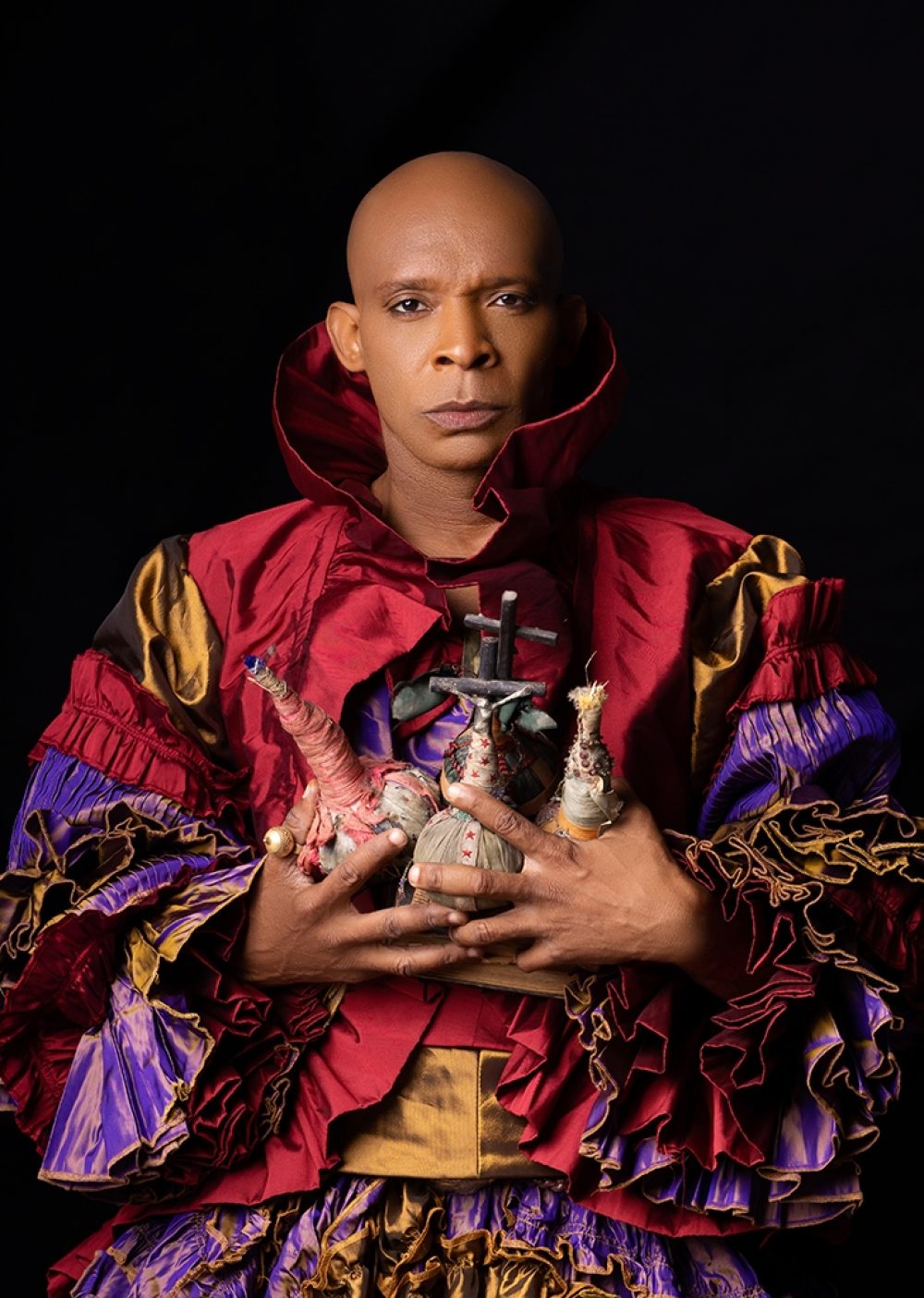
Related Audio Programs
